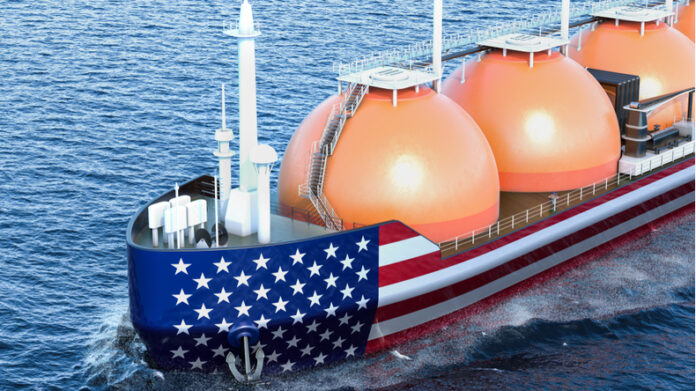U.S. liquefied natural gas exports fell in May as plant outages and maintenance at the country’s largest export facility curbed production, according to preliminary ship tracking data from LSEG.
The United States, the world’s top LNG exporter, shipped 8.9 million metric tons of LNG in May, down from a record 9.3 million metric tons in April. Monthly changes in U.S. output can influence global LNG prices, particularly in Europe and Asia.
All U.S. LNG export plants experienced short periods of reduced output in May compared to April, the data showed. Cheniere Energy confirmed that its Sabine Pass facility in Texas, the largest in the country with a capacity of 30 million metric tons per year, was undergoing maintenance.
Gas flows to Sabine Pass have remained at a 23-month low of about 3.1 billion cubic feet per day since May 31, down from an average of 4.3 bcfd the previous week. Freeport LNG, the third-largest LNG exporter in the U.S., also reported several outages during the month.
Europe continued to be the primary destination for U.S. LNG, accounting for 6.05 million metric tons, or 68% of total exports, the same share as in April. Traders favored Europe to capitalize on higher prices there relative to Asia. Benchmark gas prices at the Title Transfer Facility (TTF) in the Netherlands rose to $11.68 per million British thermal units in May, up from $11.48 in April and $10.12 in May 2024.
Exports to Asia totaled 1.88 million metric tons, or 21% of U.S. LNG shipments, slightly down from 2.05 million metric tons, or 22%, in April. Chinese demand remained soft due to strong domestic output, pipeline imports, renewable generation, and weak industrial demand.
China continues to resell U.S. LNG cargoes to avoid retaliatory tariffs amid ongoing trade tensions with the U.S.
Prices at Asia’s Japan Korea Marker dropped to $11.83 per mmBtu in May from $12.23 in April, though they remained above the $11.10 average recorded in May 2024.
Latin American exports declined slightly, with 0.66 million metric tons shipped in May, compared to 0.68 million in April. Egypt purchased three cargoes totaling 0.22 million metric tons, while Bahrain took one cargo of 0.07 million metric tons. One cargo departed Sabine Pass on May 23 but remained in the Caribbean without a declared destination as of Monday.
U.S. LNG production is expected to rise later this year as Cheniere begins operating four of its seven midscale trains at Corpus Christi, Golden Pass LNG LLC starts production, and Venture Global’s Plaquemines facility completes construction.




